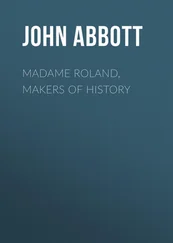John Abbott - Maria Antoinette
Здесь есть возможность читать онлайн «John Abbott - Maria Antoinette» — ознакомительный отрывок электронной книги совершенно бесплатно, а после прочтения отрывка купить полную версию. В некоторых случаях можно слушать аудио, скачать через торрент в формате fb2 и присутствует краткое содержание. Жанр: foreign_antique, foreign_prose, Историческая проза, на английском языке. Описание произведения, (предисловие) а так же отзывы посетителей доступны на портале библиотеки ЛибКат.
- Название:Maria Antoinette
- Автор:
- Жанр:
- Год:неизвестен
- ISBN:нет данных
- Рейтинг книги:5 / 5. Голосов: 1
-
Избранное:Добавить в избранное
- Отзывы:
-
Ваша оценка:
- 100
- 1
- 2
- 3
- 4
- 5
Maria Antoinette: краткое содержание, описание и аннотация
Предлагаем к чтению аннотацию, описание, краткое содержание или предисловие (зависит от того, что написал сам автор книги «Maria Antoinette»). Если вы не нашли необходимую информацию о книге — напишите в комментариях, мы постараемся отыскать её.
Maria Antoinette — читать онлайн ознакомительный отрывок
Ниже представлен текст книги, разбитый по страницам. Система сохранения места последней прочитанной страницы, позволяет с удобством читать онлайн бесплатно книгу «Maria Antoinette», без необходимости каждый раз заново искать на чём Вы остановились. Поставьте закладку, и сможете в любой момент перейти на страницу, на которой закончили чтение.
Интервал:
Закладка:
John S. C. Abbott
Maria Antoinette Makers of History
PREFACE
In this history of Maria Antoinette it has been my endeavor to give a faithful narrative of facts, and, so far as possible, to exhibit the soul of history. A more mournful tragedy earth has seldom witnessed. And yet the lesson is full of instruction to all future ages. Intelligence and moral worth combined can be the only basis of national prosperity or domestic happiness. But the simple story itself carries with it its own moral, and the reflections of the writer would encumber rather than enforce its teachings.
Chapter I.
Parentage and Childhood
In the year 1740, Charles VI., emperor of Austria, died. He left a daughter twenty-three years of age, Maria Theresa, to inherit the crown of that powerful empire. She had been married about four years to Francis, duke of Lorraine. The day after the death of Charles, Maria Theresa ascended the throne. The treasury of Austria was empty. A general feeling of discontent pervaded the kingdom. Several claimants to the throne rose to dispute the succession with Maria; and France, Spain, Prussia, and Bavaria took advantage of the new reign, and of the embarrassments which surrounded the youthful queen, to enlarge their own borders by wresting territory from Austria.
The young queen, harassed by dissensions at home and by the combined armies of her powerful foes, beheld, with anguish which her proud and imperious spirit could hardly endure, her troops defeated and scattered in every direction, and the victorious armies of her enemies marching almost unimpeded toward her capital. The exulting invaders, intoxicated with unanticipated success, now contemplated the entire division of the spoil. They decided to blot Austria from the map of Europe, and to partition out the conglomerated nations composing the empire among the conquerors.
Maria Theresa retired from her capital as the bayonets of France and Bavaria gleamed from the hill-sides which environed the city. Her retreat with a few disheartened followers, in the gloom of night, was illumined by the flames of the bivouacs of hostile armies, with which the horizon seemed to be girdled. The invaders had possession of every strong post in the empire. The beleaguered city was summoned to surrender. Resistance was unavailing. All Europe felt that Austria was hopelessly undone. Maria fled from the dangers of captivity into the wilds of Hungary. But in this dark hour, when the clouds of adversity seemed to be settling in blackest masses over her whole realm, when hope had abandoned every bosom but her own, the spirit of Maria remained as firm and inflexible as if victory were perched upon her standards, and her enemies were flying in dismay before her. She would not listen to one word of compromise. She would not admit the thought of surrendering one acre of the dominions she had inherited from her fathers. Calm, unagitated, and determined, she summoned around her, from their feudal castles, the wild and warlike barons of Hungary. With neighing steeds, and flaunting banners, and steel-clad retainers, and all the paraphernalia of barbaric pomp, these chieftains, delighting in the excitements of war, gathered around the heroic queen. The spirit of ancient chivalry still glowed in these fierce hearts, and they gazed with a species of religious homage upon the young queen, who, in distress, had fled to their wilds to invoke the aid of their strong arms.
Maria met them in council. They assembled around her by thousands in all the imposing splendor of the garniture of war. Maria appeared before these stern chieftains dressed in the garb of the deepest mourning, with the crown of her ancestors upon her brow, her right hand resting upon the hilt of the sword of the Austrian kings, and leading by her left hand her little daughter Maria Antoinette. The pale and pensive features of the queen attested the resolute soul which no disasters could subdue. Her imperial spirit entranced and overawed the bold knights, who had ever lived in the realms of romance. Maria addressed the Hungarian barons in an impressive speech in Latin, the language then in use in the diets of Hungary, faithfully describing the desperate state of her affairs. She committed herself and her children to their protection, and urged them to drive the invaders from the land or to perish in the attempt. It was just the appeal to rouse such hearts to a phrensy of enthusiasm. The youth, the beauty, the calamities of the queen roused to the utmost intensity the chivalric devotion of these warlike magnates, and grasping their swords and waving them above their heads, they shouted simultaneously, "Moriamur pro rege nostro, Maria Theresa" – " Let us die for our king, Maria Theresa. "
Until now, the queen had preserved a demeanor perfectly tranquil and majestic. But this affectionate enthusiasm of her subjects entirely overcame her imperious spirit, and she burst into a flood of tears. But, apparently ashamed of this exhibition of womanly feeling she almost immediately regained her composure, and resumed the air of the indomitable sovereign. The war cry immediately resounded throughout Hungary. Chieftains and vassals rallied around the banner of Maria. In person she inspected and headed the gathering army, and her spirit inspired them. With the ferocity of despair, these new recruits hurled themselves upon the invaders. A few battles, desperate and sanguinary, were fought, and the army of Maria was victorious. England and Holland, apprehensive that the destruction of the Austrian empire would destroy the balance of power in Europe, and encouraged by the successful resistance which the Austrians were now making, came to the rescue of the heroic queen. The tide of battle was turned. The armies of France, Germany, and Spain were driven from the territory which they had overrun. Maria, with untiring energy, followed up her successes. She pursued her retreating foes into their own country, and finally granted peace to her enemies only by wresting from them large portions of their territory. The renown of these exploits resounded through Europe. The name of Maria Theresa was embalmed throughout the civilized world. Under her vigorous sway Austria, from the very brink of ruin, was elevated to a degree of splendor and power it had never attained before. These conflicts and victories inspired Maria with a haughty and imperious spirit, and the loveliness of the female character was lost amid the pomp of martial achievements. The proud sovereign eclipsed the woman.
It is not to be supposed that such a bosom could be the shrine of tenderness and affection. Maria's virtues were all of the masculine gender. She really loved, or, rather, liked her husband; but it was with the same kind of emotion with which an energetic and ambitious man loves his wife. She cherished him, protected him, watched over him, and loaded him with honors. He was of a mild, gentle, confiding spirit, and would have made a lovely wife. She was ambitious, fearless, and commanding, and would have made a noble husband. In fact, this was essentially the relation which existed between them. Maria Theresa governed the empire, while Francis loved and caressed the children.
Читать дальшеИнтервал:
Закладка:
Похожие книги на «Maria Antoinette»
Представляем Вашему вниманию похожие книги на «Maria Antoinette» списком для выбора. Мы отобрали схожую по названию и смыслу литературу в надежде предоставить читателям больше вариантов отыскать новые, интересные, ещё непрочитанные произведения.
Обсуждение, отзывы о книге «Maria Antoinette» и просто собственные мнения читателей. Оставьте ваши комментарии, напишите, что Вы думаете о произведении, его смысле или главных героях. Укажите что конкретно понравилось, а что нет, и почему Вы так считаете.












